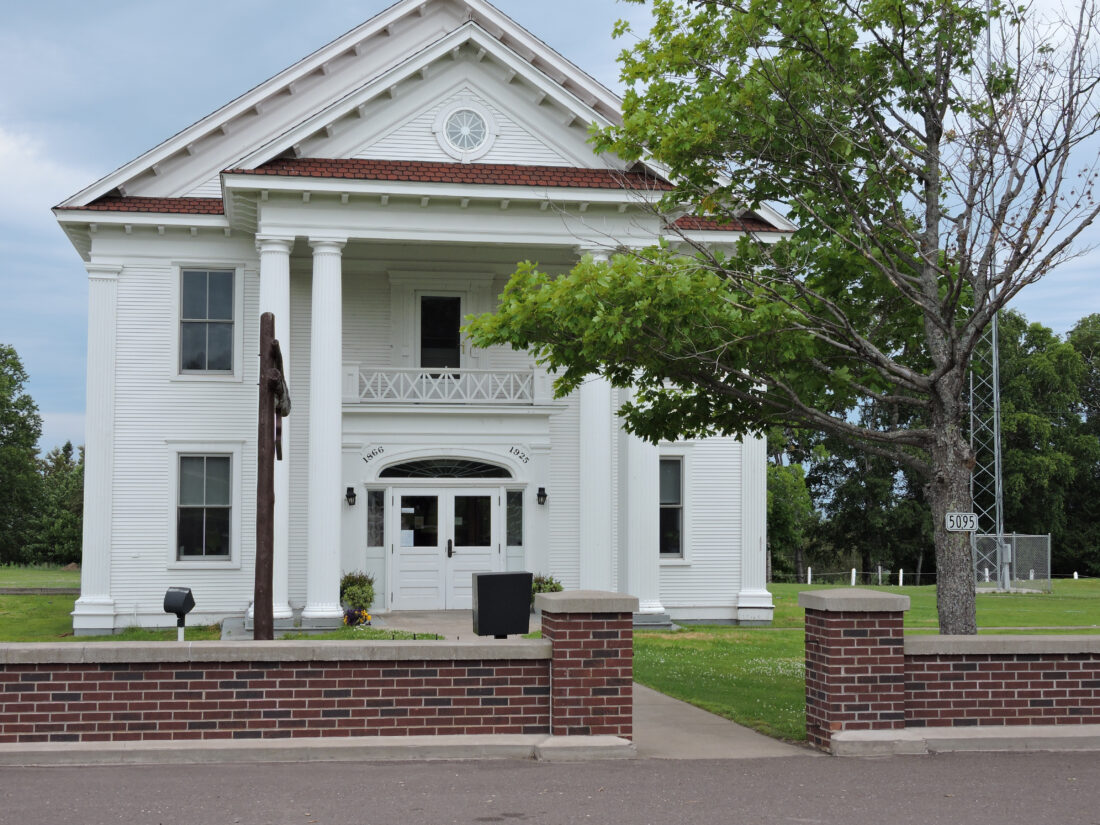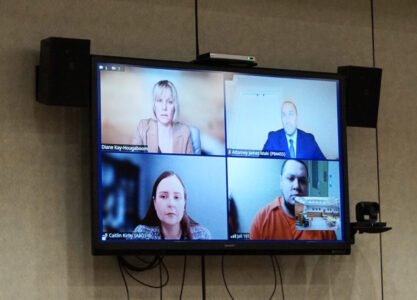Keweenaw County Board opposes state cut proposal

The Keweenaw County Board of Commissioners on Wednesday growing list of counties opposing a proposal to cut nearly $35 million in statutory revenue sharing to counties. (Graham Jaehnig/Daily Mining Gazette)
EAGLE RIVER — The Keweenaw County Board unanimously passed a resolution opposing the Michigan House of Representatives’ Fiscal Year 2026 budget proposal, which includes cuts to county revenue sharing at its regular September meeting Wednesday.
At Wednesday’s meeting Commission Chairman Don Piche said simply that supporting the resolution opposing the proposal was a “no brainer.”
The House budget includes a $34.9 million cut to statutory revenue sharing for counties, a decision that has sparked significant pushback from county officials. This proposal was adopted in August 2025 as part of a larger budget plan amid state financial shortfalls and ongoing negotiations with the Senate and Governor Whitmer’s budget recommendation for fiscal year 2026 totals $83.5 billion, including a general fund total of $15.3 billion and a school aid budget totaling $21.2 billion. The budget also includes $34.8 billion in federal funds, representing 41.7% of the total budget for FY26.
Included in the governor’s recommendation is a 4% ongoing in statutory revenue sharing totaling $22.7 million.
The Michigan Association of Counties (MAC), which is encouraging counties to oppose the House proposal, says the House plan also strains county resources even through the process of issuing new dollars. For example, there is $40 million for county sheriffs, but with strings attached. Any county that raised sheriff budgets in FY25 using revenue sharing must keep that higher funding level, even as overall revenue sharing is cut, which locks counties into higher law enforcement costs while reducing flexible general funds.
Counties are mandated by state law to provide essential services including courts, jails, elections, public health public safety and human services. Unlike cities, villages and townships, however, counties do not receive constitutionally guaranteed revenue sharing. Counties rely on statutory revenue sharing, which, the MAC says, leaves counties uniquely vulnerable to state budget decisions.






